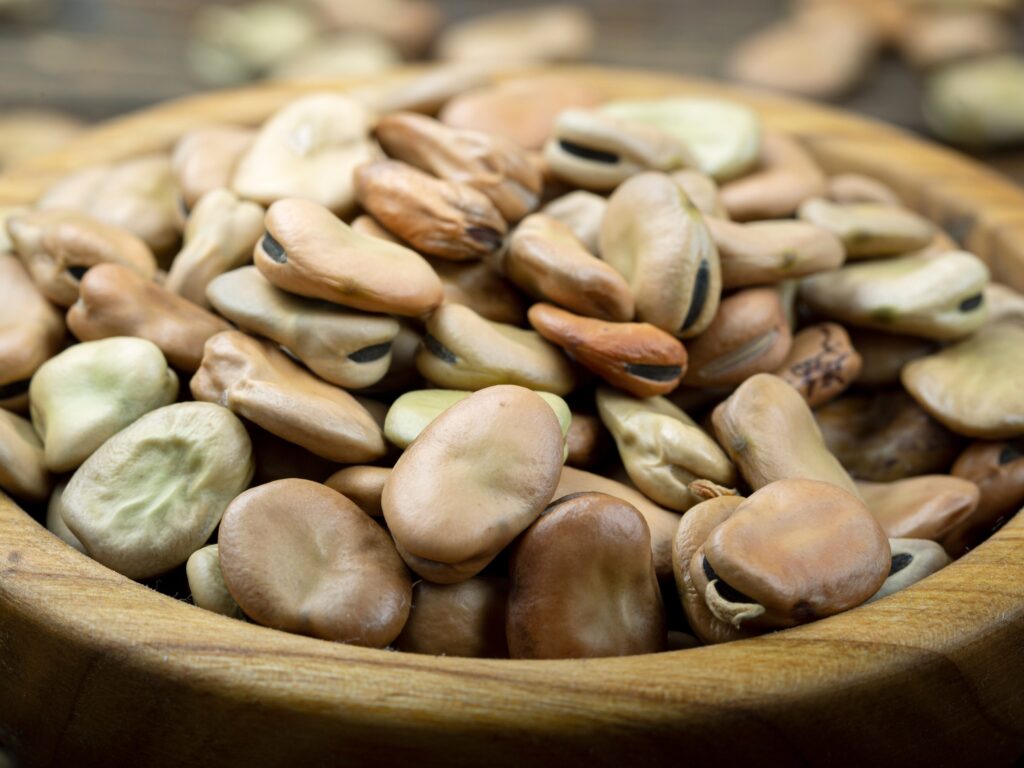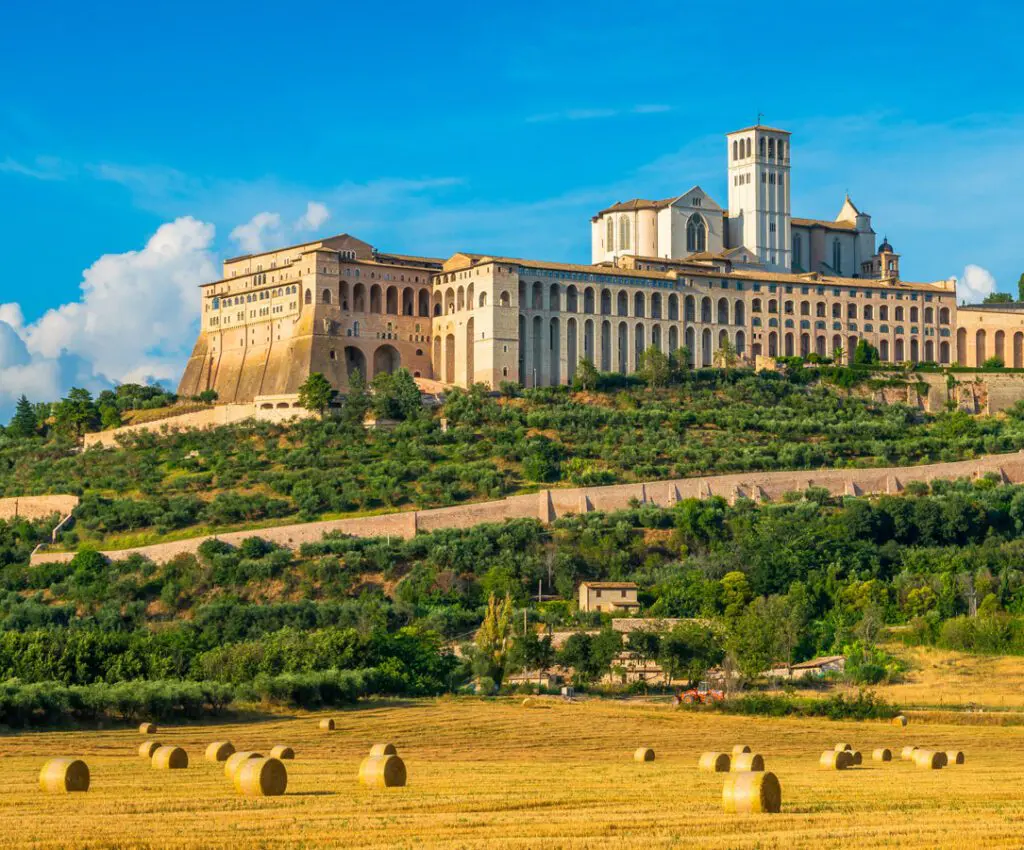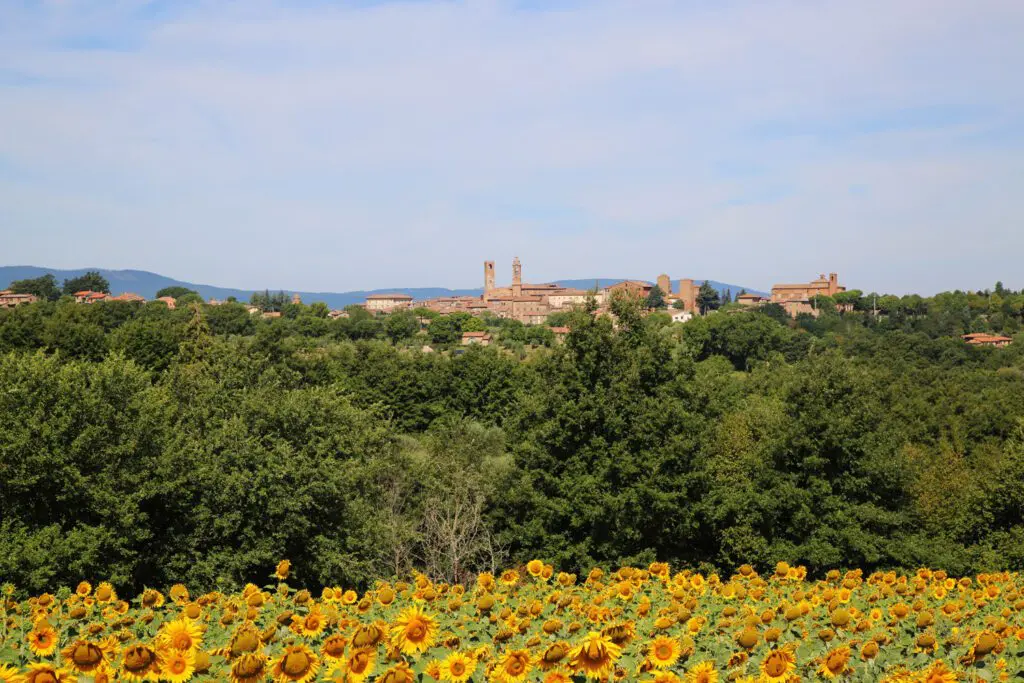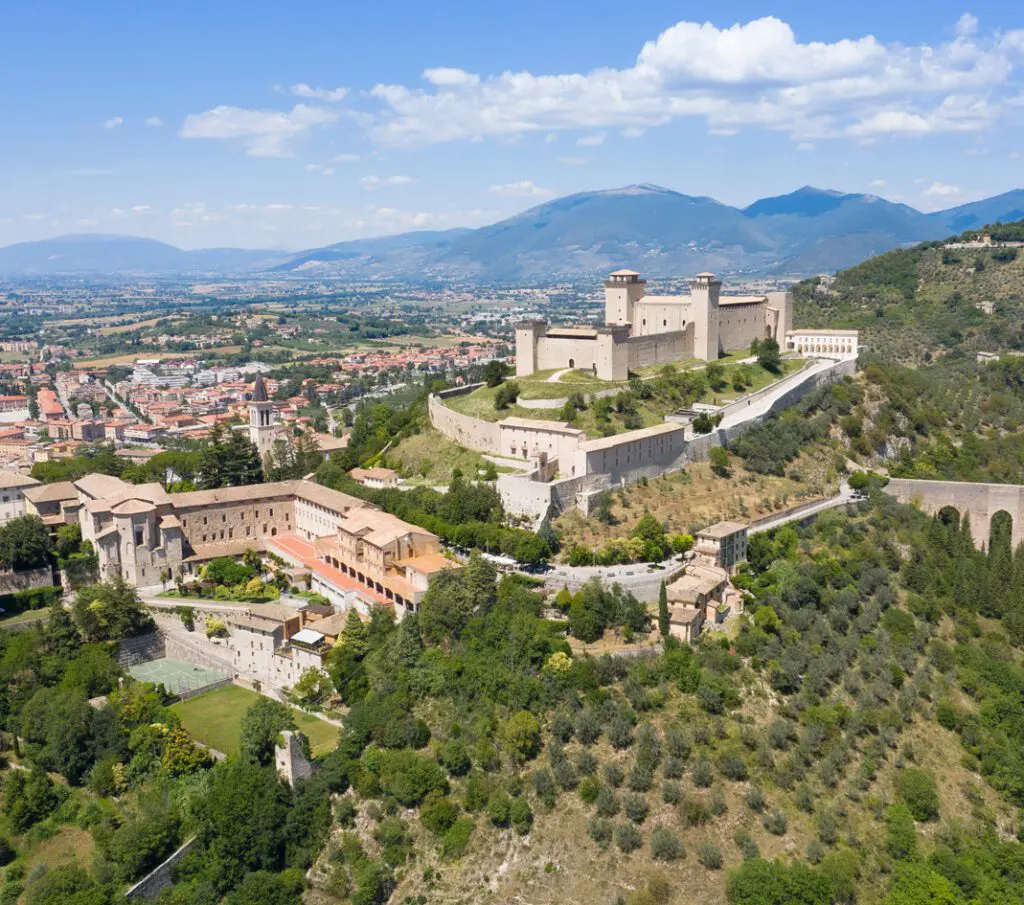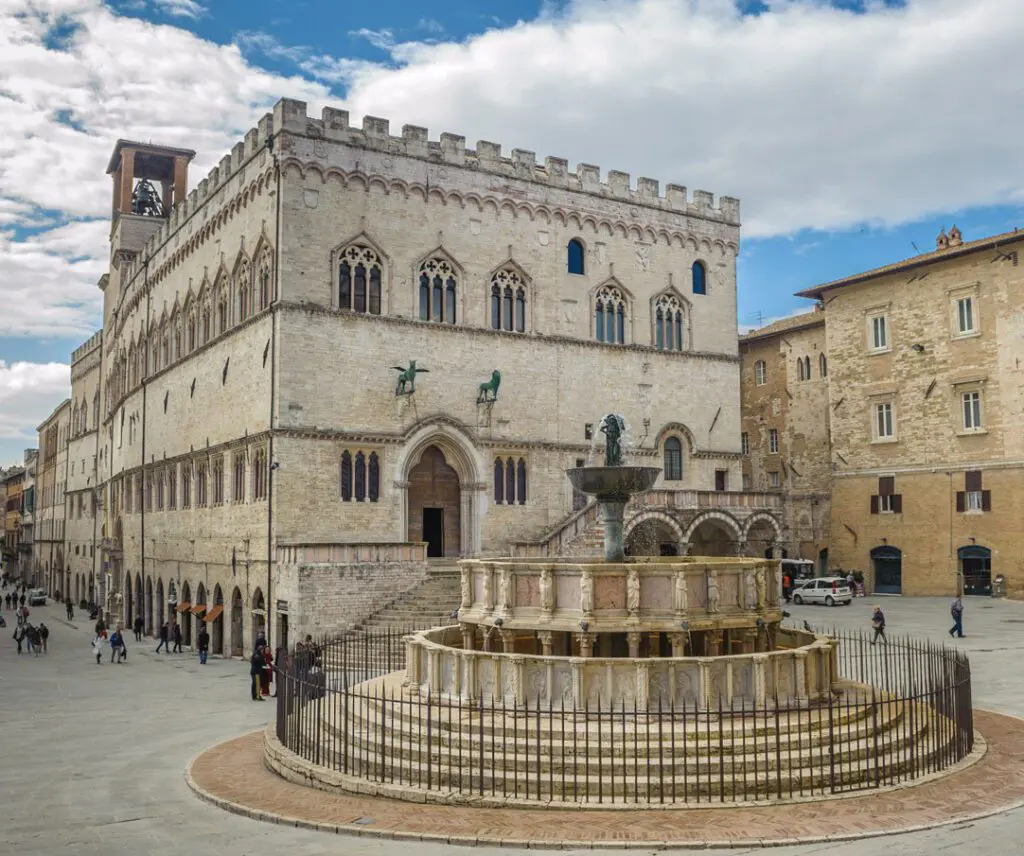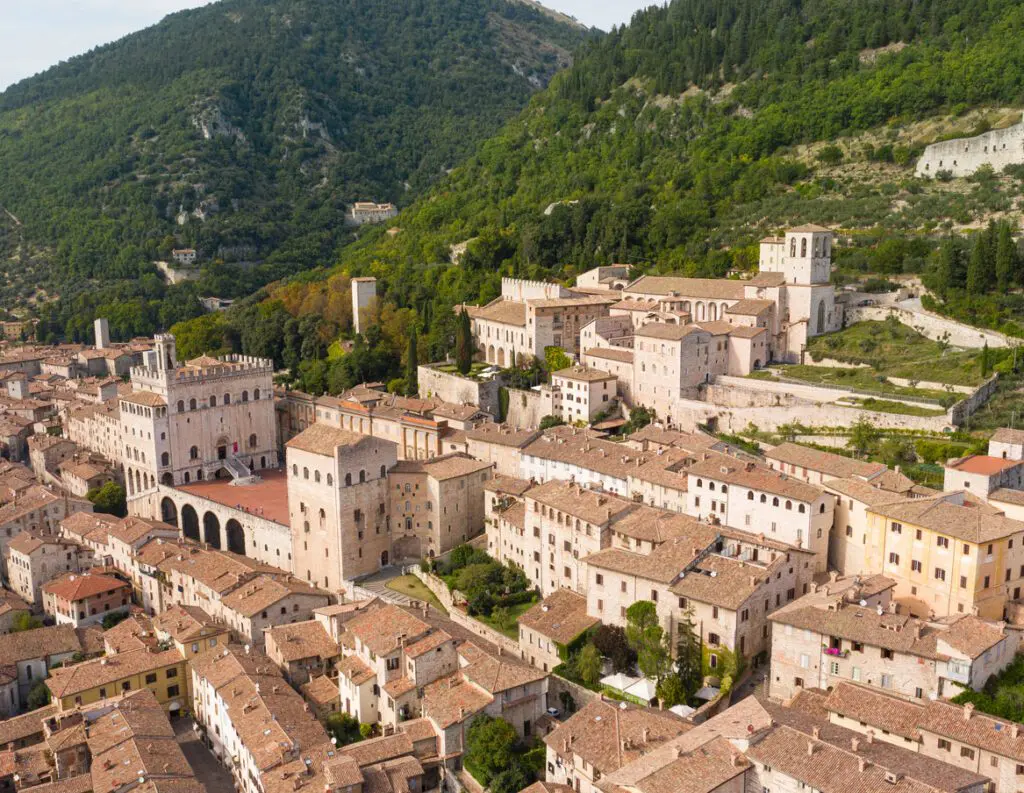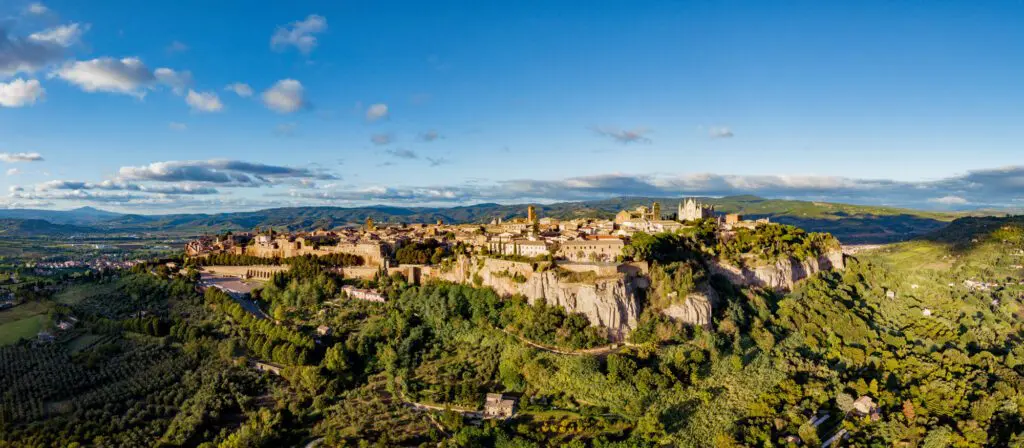The River Nera is a watercourse that, for 116 km, flows through central Italy, touching three regions: Marche, Umbria and Lazio. The river basin occupies a total area of about 4.200 square kilometres and is, in terms of water flow, the main tributary of the River Tiber.
From the Sibylline Mountains to the River Tiber, through Umbria and Valnerina
The River Nera originates near Castelsantangelo sul Nera, located within the Sibylline Mountains National Park in the Umbria-Marche Apennines. After passing through Visso, on the border between Marche and Umbria, it enters this latter region and runs through a narrow and deep valley that takes its name from the river: the Valnerina. Within the Valnerina, the river flows near small villages, including Cerreto di Spoleto, Ferentillo, Montefranco, Arrone, Scheggino, San Pietro in Valle and Sant'Anatolia di Narco. At the bottom of the valley, the Nera meets the River Velino giving rise together to the Marmore Falls (Cascata delle Marmore). Continuing running after the waterfall, the River Nera crosses an alluvial basin to reach the city of Terni. After passing through the city, it joins the River Tiber near Orte Scalo, in the province of Viterbo (Lazio).
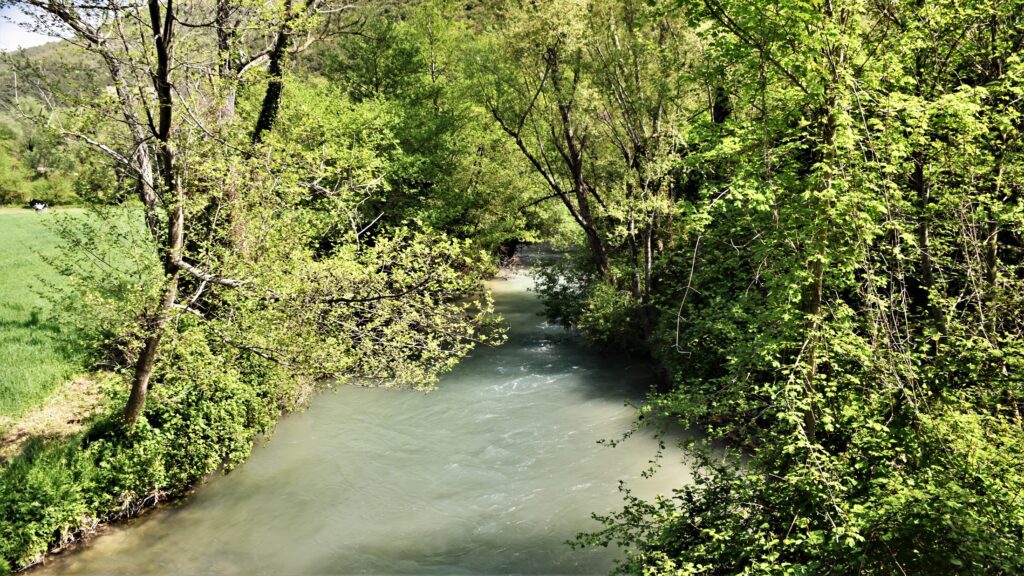
The past and present relevant role of the River Nera
Over the centuries, the presence of the River Nera has turned what is now called the Valnerina into a transit area for trade. It marked a natural boundary between the territories of the Umbri and the Sabines around the 5th century. In addition, the river water was used for the functioning of mills to press olives and grind cereals. Today, the river provides water for agriculture, industry and the production of hydroelectric energy following the construction of dams and hydroelectric power plants along the river (for example, the Galleto power plant).
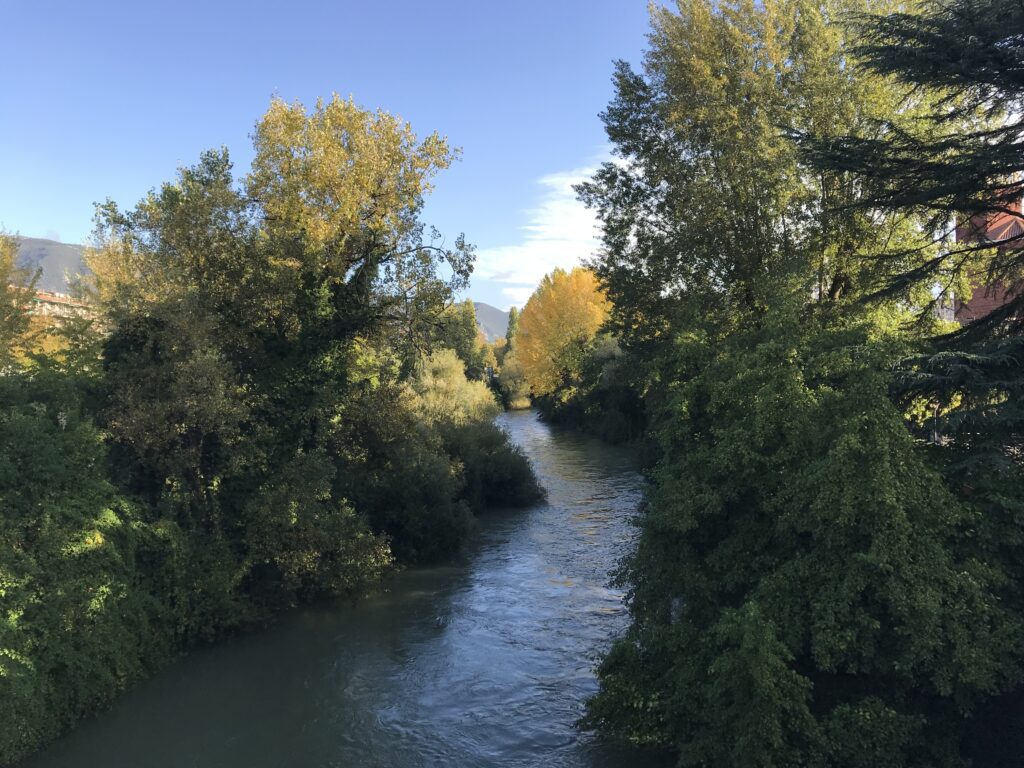
The ideal place for cultural, naturalistic and sport tourism in Umbria
The River Nera flows through places of great cultural and scenic beauty; for this reason, it is also a popular tourist attraction. It offers the possibility of boat trips and admiring nature, architecture, and art along its banks, such as the numerous Medieval abbeys that have arisen near its banks. It crosses several protected areas, such as the Sibylline Mountains National Park, and offers several opportunities for water sports, such as rafting and kayaking.

Vivi l’Umbria insieme ai suoi protagonisti
Percorsi ed esperienze da scoprire per un’immersione nella cultura, nella natura e nei sapori umbri
